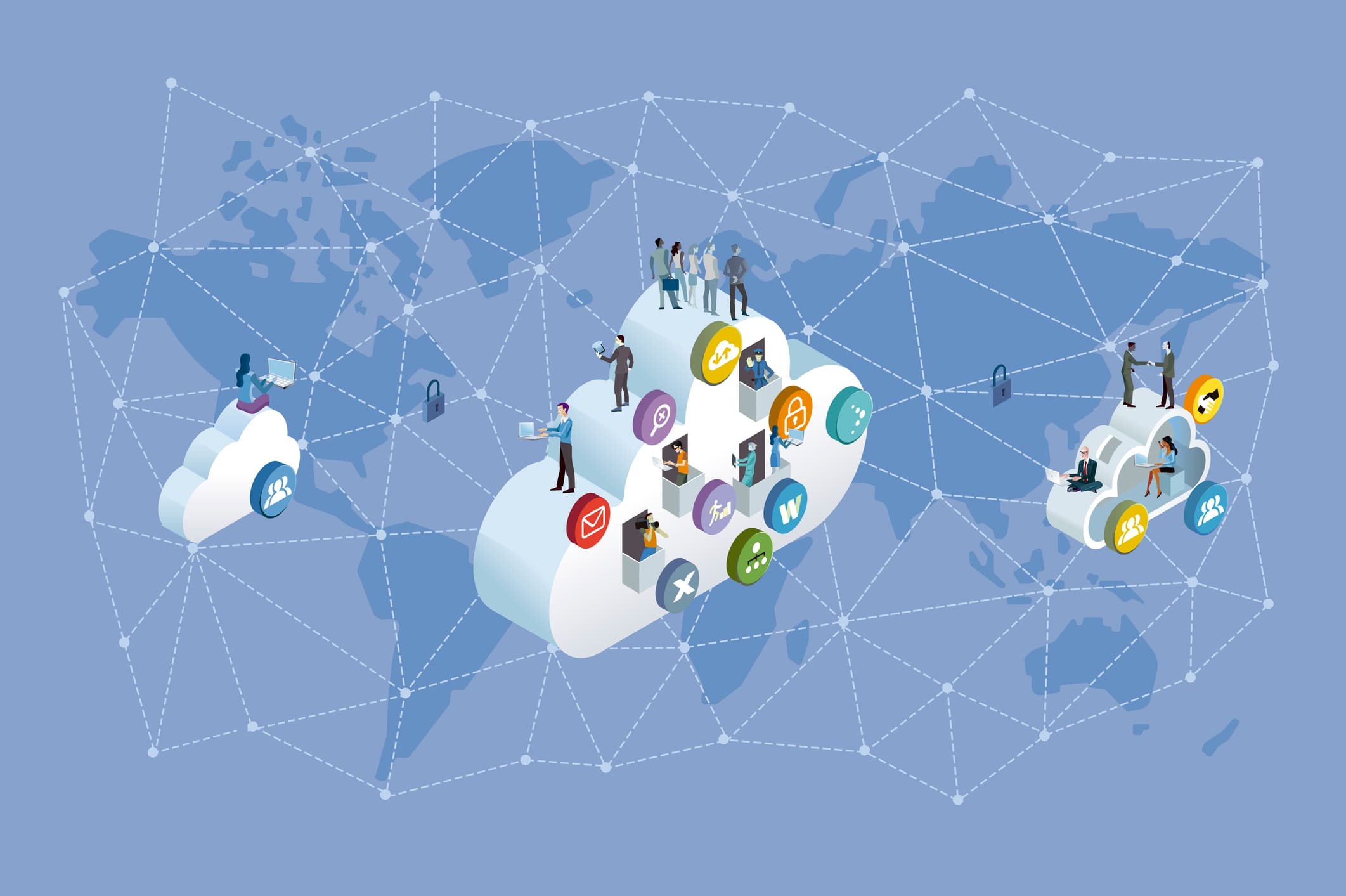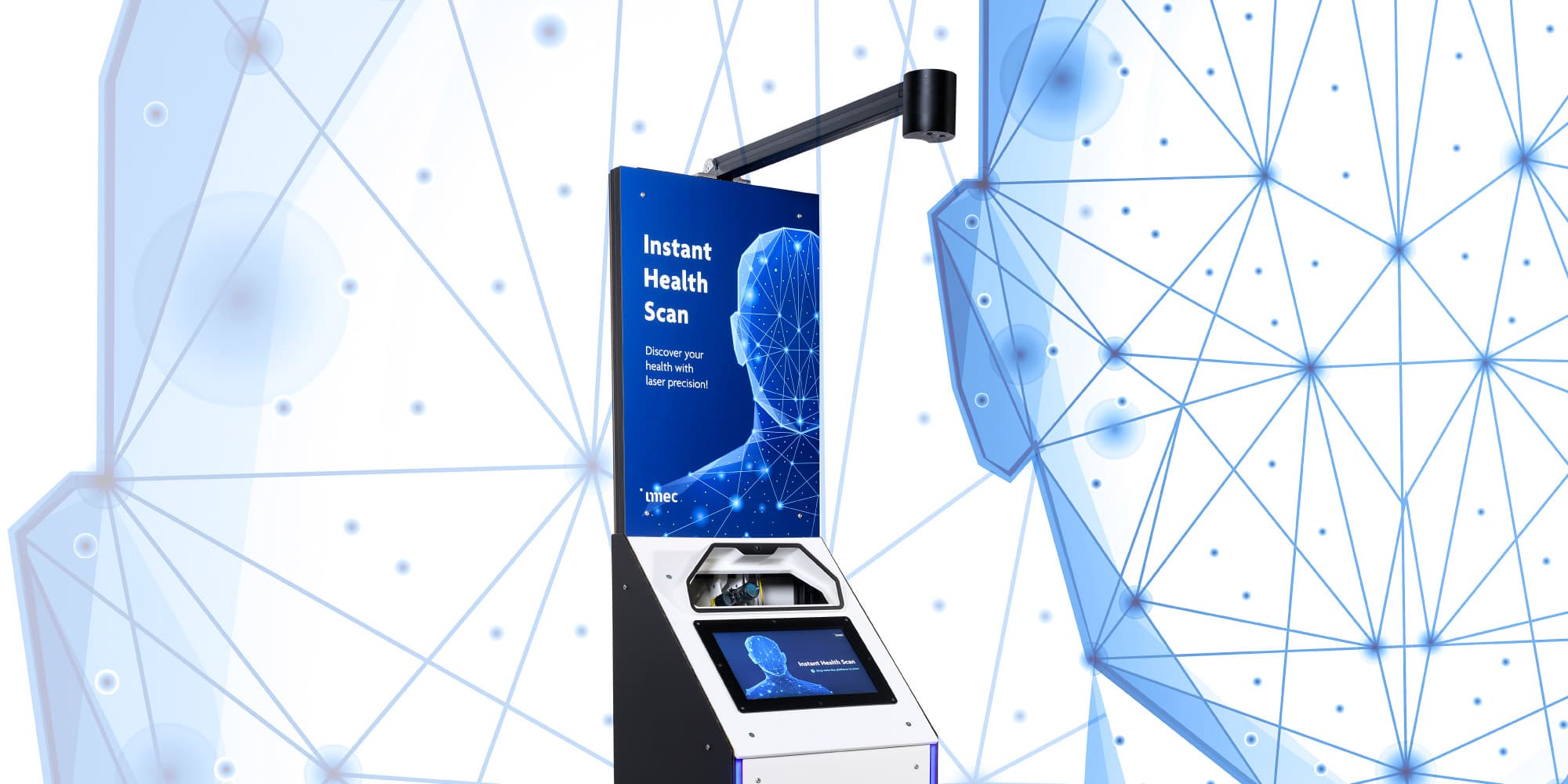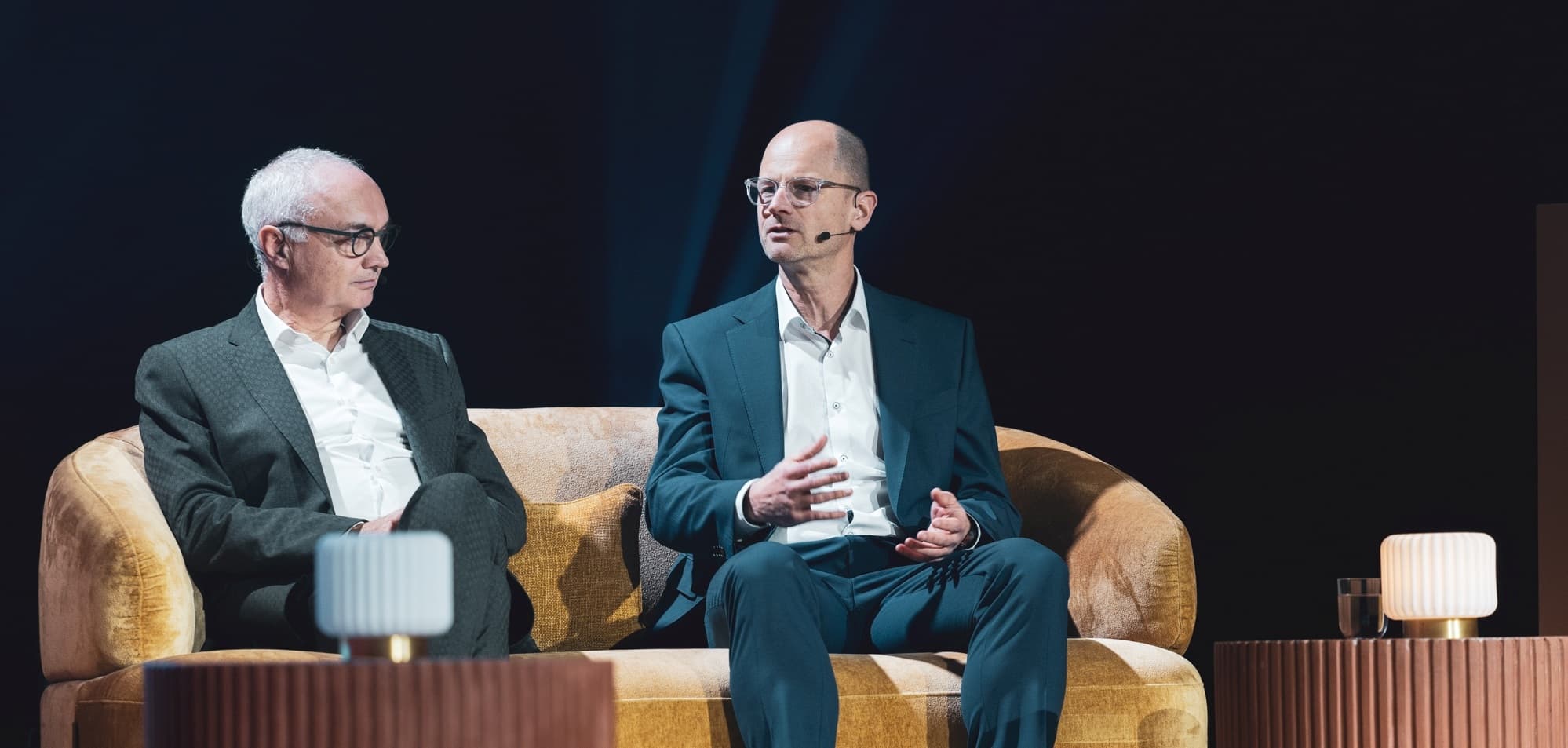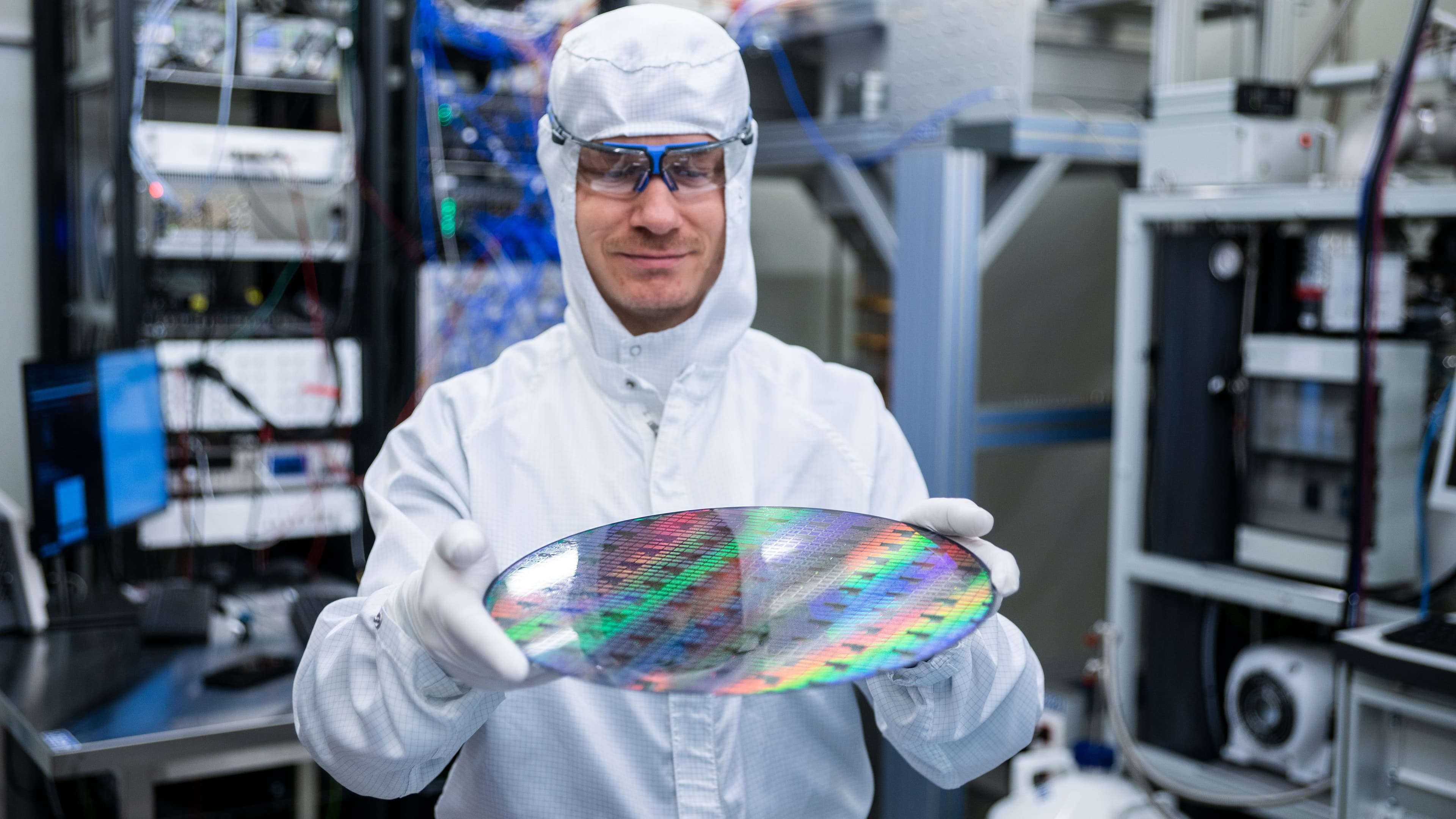The influence of the world’s biggest internet companies grows exponentially with the amount of data they gather from users. For consumers to regain control of their data, an alternative system is required – enter the decentralized web. But what is the decentralized web and how will it affect – or disrupt – business?
Even Your Local Supermarket Tracks & Analyzes What You Buy
When Tim Berners-Lee invented the world wide web in 1989, he envisioned an open space. Since then, the web has become a system of centralized power, governed by a handful of internet giants. What makes them so powerful is the incredible amount of data they have amassed. Data collection is central to their business model. The more data they collect, the more profitable they become.
In the last decade, big data has become a driving force in the economy. This reaches beyond internet companies – ones that you'd expect to collect and use data as part of their core business – to less likely places. Even your local supermarket tracks and analyzes what you buy, either to provide personalized advertising or to optimize their offer.
While big data can yield valuable insights, companies’ data greed comes at a price. In the aftermath of a series of data breaches, consumers have started to wonder and worry about what happens with their data. In Europe, this concern has already been translated into the General Data Protection Regulation (GDPR), making it more difficult and expensive for companies to collect data from European citizens.
From a business perspective as well, the focus on big data as a sleeping gold mine is beginning to crumble. Not only does this data-centric business model come with legal risk, but it also stifles innovation. The companies that are winning the big data race have little incentive to innovate. For new entrants or competitors with a potentially more appealing offering, it is hard to grow simply because everyone’s data is locked in existing platforms.
Let’s Decentralize!
As Berners-Lee says,
“The web has evolved into an engine of inequity and division; swayed by powerful forces who use it for their own agendas.”
This is not the open web that he originally had in mind. For this reason, Berners-Lee and a group of leading international researchers are working behind the scenes to develop an alternative, decentralized web. The open-source projects, Solid and Inrupt, are examples of decentralized web initiatives.
In the decentralized web, our data could be saved in “data pods” that people can control themselves, on a server of their choice. Each user could have several data pods that can be used for personal data, work-related information, official documents, etc. From there, people could choose – for each individual application – which data pod they want to make available.
What is important is that applications will have access to the data, but no copies will be made. This way, people could always remain in charge of their own data and how it’s used.
Doing Business In The Decentralized Web: Back To Basics
A shift towards a decentralized web will disrupt today’s data-centric business model because data storage and applications will become two independent markets. For instance, someone might use the social media platform developed by one company, yet store their data with another company.
Competition between different data-driven applications will change, becoming more collaborative. As they no longer own the data they run on, applications will need to be able to read each other’s data. Social media platforms, for instance, will merely become interfaces to interact with available data. This new model stimulates innovation by forcing companies to offer the best service to attract users. Leading applications would remain motivated to continuously optimize their offer and new entrants have a fair shot at making it.
Obviously, applications will also have to generate money in a different way. It is likely consumers will pay for services that are now typically offered for “free” (in return for personal data). Perhaps they will be given the option, opening up their data or paying a monthly fee.
Even in the decentralized web, data collection and analysis can yield interesting insights, maybe even more so than today. If consumers are in control of all their data, they might decide to share their shopping history at one supermarket with another supermarket (e.g., in return for personalized reductions). This way, a whole new world of information becomes available to companies wanting to optimize their services.
The arrival of the decentralized web is not an obstacle that complicates business. Rather, it's an opportunity to innovate and disrupt.
From a technological point of view, a decentralized web is more complex than the current centralized web, and there are still a number of technical challenges to overcome. However, this is a transitional period. Several companies are already exploring alternative business models and setting up pilot projects to prepare for a decentralized web.
Which leaves the question: is there something you and I can do to help making this decentralized web a reality? Yes, we can! After all, the idea of a decentralized web shouldn’t just resonate with some enthusiastic technophiles; it should equally grow from concrete societal and industrial needs. The notion of a private data pod, for instance, could very well appeal to sectors such as finance, law and healthcare; sectors that put a lot of emphasis on security and transparent information access. For them, looking in the direction of a decentralized web is the right way forward.
And from a digital society perspective, personal data pods could help all of us deal with an increasing number of parties continuously requesting access to our personal data.
Reflecting on the challenges ahead, it’s clear that change is coming – fueled by consumers’ desire to stay in control of their data. And the answer to those challenges lies in ... the decentralized web.
Note: This article has previously been featured on the Forbes Technology Council blog.

Jo De Boeck received his Engineering degree in 1986 and his PhD in 1991 (University of Leuven). He joined imec in 1991. As a researcher, he led a.o. the integration of novel materials at a device level.
In 2013, Jo became vice president of imec’s Microsystems division. After that, he headed imec The Netherlands and – later – the Smart Systems & Energy Technology Unit. In 2011, he was appointed Chief Technology Officer; in 2018 he became imec’s Chief Strategy Officer.
Jo is part-time professor at the Engineering department of the KU Leuven and held a visiting professorship at the TU Delft (2003–2016). He is a member of imec’s Executive Board.
Published on:
14 January 2020













